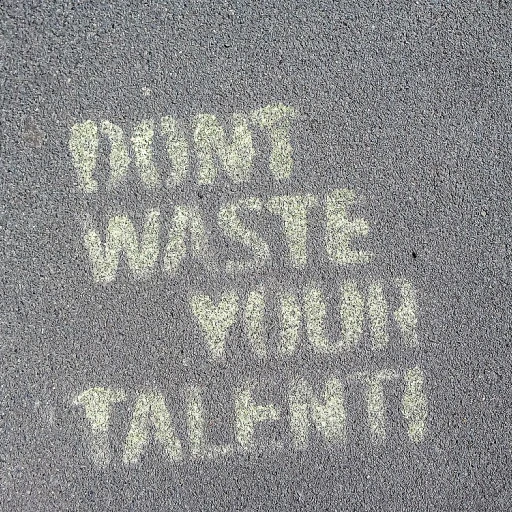Understanding Misdemeanors in the Context of Employment
Grasping Misdemeanors in Employment Context
Understanding how a misdemeanor can affect employment opportunities is crucial for job seekers navigating the job market with a criminal record. Misdemeanor charges, while often considered less severe than felonies, can still impact a candidate's job prospects considerably. Employers routinely conduct background checks, and the presence of a misdemeanor conviction can sometimes become a hurdle, raising concerns about a candidate's character and trustworthiness. Employers may have varying policies regarding misdemeanors due to the inherent differences across industries and legal jurisdictions. A misdemeanor record can seem prohibitive, but it is essential to note that not all employers will view it as a disqualifying factor. Factors such as the nature of the job, the age of the conviction, and the specific type of misdemeanor can influence hiring decisions. Moreover, the concept of "ban the box" has gained traction to help reduce discrimination against individuals with criminal records. This movement encourages employers to remove questions about criminal history from initial job applications, allowing candidates to demonstrate their qualifications first without the immediate bias of a disclosed misdemeanor. Legal protections exist for job seekers, ensuring employers lawfully conduct background checks in line with state and federal regulations. For example, in Texas, individuals with misdemeanor records may explore options like record sealing or engaging a criminal defense law firm to understand their rights and opportunities. While there are undeniable challenges, various strategies can help mitigate the impact of a misdemeanor record on employment opportunities. Leveraging legal options, understanding industry-specific challenges, and effectively navigating background checks are pivotal steps for job seekers aiming to improve their chances of employment despite a misdemeanor history. To further explore how to manage background check results or address negative stereotyping in hiring processes, consider reviewing advice on how to remove or address negative comments on your background and personal profile.Current Trends in Background Checks
Emerging Patterns in Background Verification Processes
The world of employment is constantly evolving, and so are the procedures that accompany hiring practices, such as background checks. With a heightened focus on ensuring safe and trustworthy work environments, employers are increasingly relying on thorough background checks that delve into past criminal records, including misdemeanor charges. One significant trend is the expansion of what these checks encompass. In addition to assessing a candidate's criminal history, including misdemeanor convictions, the scope now often includes evaluating their entire criminal record. This change reflects a broader effort to avoid any potential risks associated with negligent hiring practices. Employers in Texas and other states are now considering how even a misdemeanor conviction can affect employment opportunities. The distinction between a minor offense and a major one is becoming crucial in hiring decisions. Still, some organizations are adopting more lenient approaches, especially as the "Ban the Box" movement gains traction, urging them to omit questions about criminal convictions early in the application process. Furthermore, technological advancements play a significant role in how background checks are conducted today. Automated systems are more efficient in scanning a wide array of databases to compile comprehensive criminal background profiles. However, this reliance on technology also calls for accuracy in data retrieval to avoid wrongful or outdated information from impacting a job seeker's employment potential. For job seekers grappling with past misdemeanor charges, understanding what employers consider in background checks can be pivotal. Understanding factors considered in background checks is crucial for navigating the job market successfully. Ultimately, the goal for job seekers and employers alike is to balance the need for safe workplace environments with fair employment opportunities for individuals with criminal records.Legal Considerations and Rights of Job Seekers
Legal Rights and Considerations for Job Seekers with Misdemeanor Records
Navigating the complex world of job applications with a misdemeanor record can bring up a myriad of questions about legal rights and options. It's crucial for job seekers to understand the legal protections and considerations that pertain to their situation.
Firstly, understanding the Fair Credit Reporting Act (FCRA) is vital. This federal law regulates how background checks are conducted and used by employers, ensuring that any information reported is accurate and the result of legitimate sources. Job seekers have the right to be notified if an adverse employment action is taken based on their criminal records or background checks.
Additionally, several states have adopted “ban the box” laws, which prohibit employers from inquiring about an applicant's criminal history early in the hiring process. While widely adopted, these laws can vary significantly by state and city. Understanding your local regulations can help in strategizing your job search effectively. For instance, in states like Texas, these laws provide a buffer for candidates with misdemeanor charges as they transition into face-to-face interviews where they can address their records directly.
If you're dealing with a misdemeanor conviction, consider your options around record sealing, which can sometimes prevent certain records from appearing in traditional background checks. Working with a law firm with expertise in criminal defense can provide tailored guidance on this front, potentially improving your employment prospects.
Employers must also adhere to the Equal Employment Opportunity Commission (EEOC) guidelines when using criminal background checks in hiring decisions. Discrimination based on an applicant's criminal record could potentially violate Title VII of the Civil Rights Act if it disproportionately affects certain groups.
In light of the evolving landscape and the impact of background check trends, staying informed and asserting your rights can significantly impact your chances of gaining employment without letting past misdemeanor charges completely prevent opportunities.
Industry-Specific Challenges and Opportunities
Overcoming Hurdles in Various Sectors
Navigating employment opportunities with a misdemeanor record involves understanding the unique challenges and opportunities that exist across different industries. A misdemeanor conviction can indeed affect employment, but the extent to which it might is largely dictated by the specific sector. Here are some important considerations:- Healthcare: This sector requires a high level of trustworthiness due to the sensitive nature of the work. Medical institutions usually conduct thorough background checks to assess criminal history. Individuals with a misdemeanor related to theft or violence might find it challenging to secure a position. However, misdemeanors unrelated to the healthcare duties might not disqualify candidates outright, depending on the policies of the institution.
- Education: Positions in educational settings typically necessitate clean criminal records due to the responsibility of working with minors. A misdemeanor conviction in this field could prevent employment entirely, but some schools may consider circumstances and the nature of the conviction before making a decision.
- Finance: Trust and integrity are key in financial roles. Employers in this sector might be particularly wary of misdemeanor convictions related to fraud or theft. However, job seekers with records unrelated to financial misconduct might still have some opportunities, depending on the employer's discretion.
- Technology: The technology industry tends to be more lenient with criminal backgrounds. Many tech companies focus more on technical skills and past job performance. Misdemeanor records might not be as significant a barrier, though it ultimately depends on company policy and the nature of the misdemeanor.
- Construction and Trades: These industries often show flexibility toward employees with misdemeanor records, focusing more on the ability to perform the job than on past convictions. However, a role involving significant trust and responsibility may still require a clean background.
Strategies for Job Seekers with Misdemeanors
Strategies to Overcome Hurdles in the Job Market
Navigating the job market with a misdemeanor record can be challenging, but not impossible. Understanding your options and employing effective strategies will increase your chances of securing employment. Here are some actionable steps you can take:- Understand Your Criminal Record: Start by obtaining a copy of your criminal background. This will help you know exactly what potential employers will see and prepare you to address specific charges or convictions during interviews.
- Seek Legal Help for Record Sealing: Depending on the state, such as Texas, you might be eligible to have your misdemeanor record sealed. Consulting a qualified law firm or criminal defense attorney will provide information about your eligibility and assist with the process. Sealing a record can significantly increase employment prospects, as it limits what employers can access during background checks.
- Research Industry Regulations: Some industries have stricter background check policies and may affect employment more significantly if you have a criminal conviction. Identify sectors that may have more leeway or specific programs for individuals with criminal records.
- Leverage "Ban the Box" Initiatives: These policies remove the checkbox inquiring about criminal records on job applications. Many jurisdictions have adopted such measures, which help ease the path to employment for those with misdemeanors. Explore local and national "Ban the Box" legislation to identify opportunities where initial screenings won’t focus on your criminal history.
- Focus on Rehabilitation and Skill Development: Demonstrating personal growth and the acquisition of new skills can be persuasive to prospective employers. Enrolling in vocational training, adult education, or volunteer work can enhance your resume and highlight your commitment to change.
- Honesty with Employers: When a background check is required, it's crucial to be upfront about past misdemeanors during interviews. Preparing a clear and honest explanation of your misdemeanor charge can demonstrate integrity and control over your narrative.
- Network and Seek Employer Partnerships: Networking within communities that support individuals with criminal backgrounds can open doors. Connect with organizations that have partnerships with employers willing to hire those with past convictions.
The Role of Technology in Background Checks
The Growing Influence of Technology on Background Checks
The digital landscape has significantly reshaped the manner in which background checks are conducted, affecting individuals with a criminal record, including those possessing a misdemeanor. As technology advances, the capacity to access and analyze employment-related data has increased, allowing employers to conduct more comprehensive background screenings. Today, employers often utilize sophisticated background check platforms that streamline the process, making it faster and more efficient. These platforms can swiftly access an individual’s criminal history, examining records for any convictions or charges, including those related to misdemeanors. As a job seeker with such a record, it is crucial to stay informed about these technological shifts. Benefits and Challenges- Efficiency: Automated systems have enhanced the speed and accuracy of background checks, reducing wait times for both employers and candidates. However, this efficiency also means that any criminal history, including misdemeanor charges, might surface rapidly.
- Data Accuracy: Technology improves the ability to cross-reference data, potentially minimizing errors in criminal records. However, inaccuracies can still occur, and it is important to verify the accuracy of one's own records regularly.
- Access: With increased access to criminal records, individuals with a misdemeanor charge may find it more challenging to secure desired positions. The ongoing practice of ban-the-box policies in various states, including Texas, seeks to alleviate such pressures by delaying the disclosure of a criminal background until later in the hiring process.











